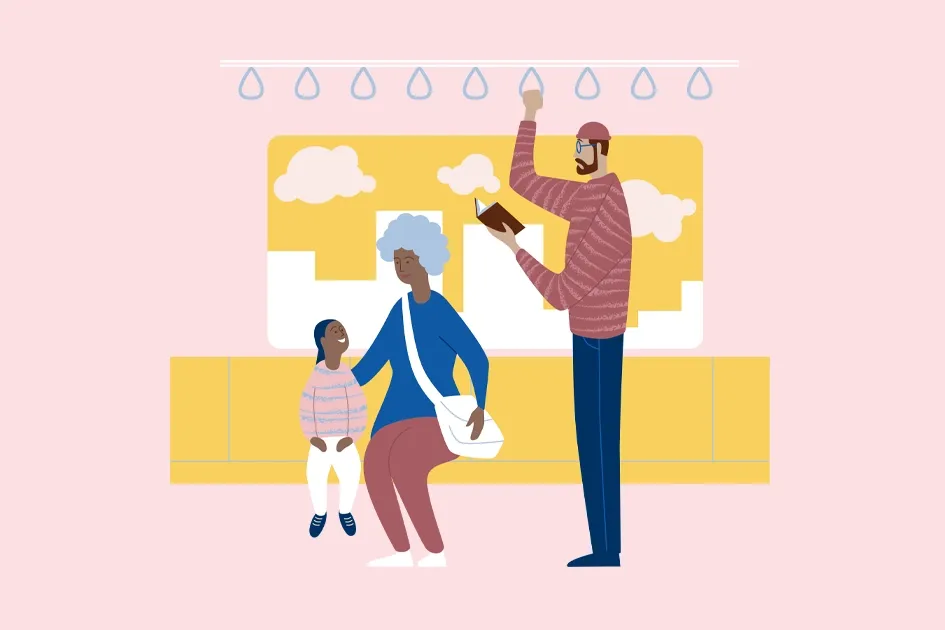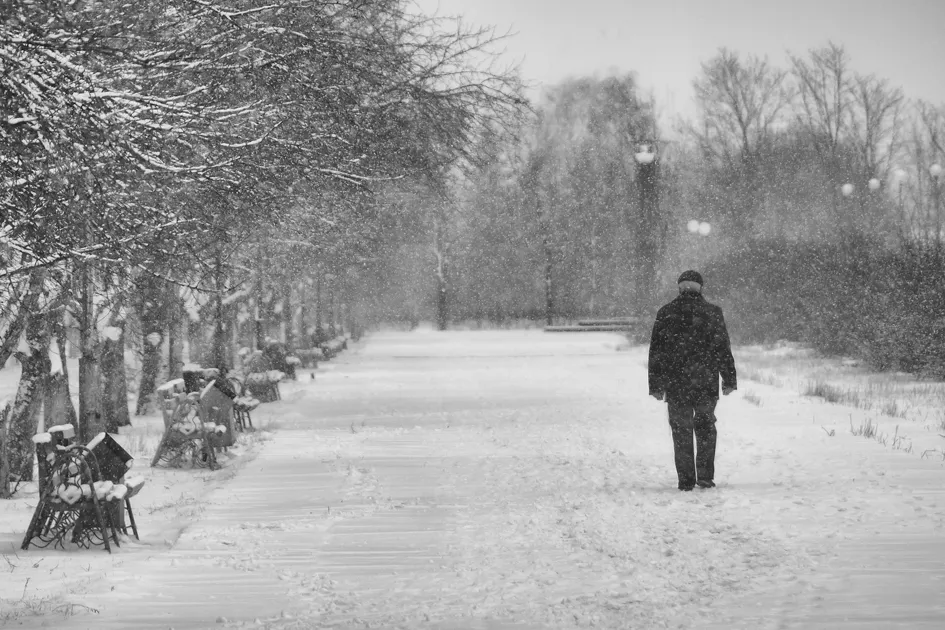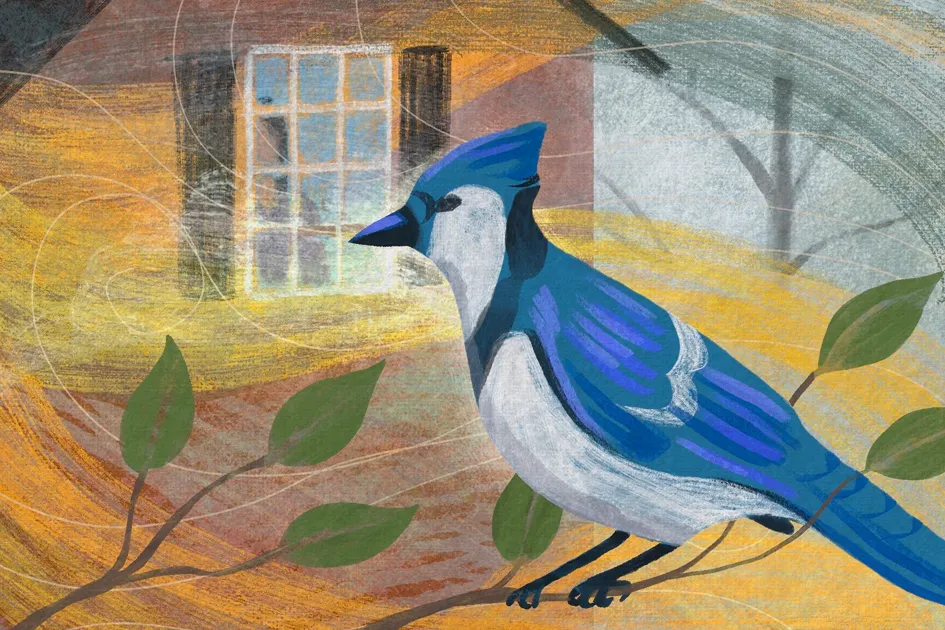It’s a chilly October morning in Milwaukee—unseasonably cold, the locals say. But the warm sun soon coaxes us to open our jackets. Kasi, a Manchester terrier, pulls at her leash, sniffing out a route through the neighborhood. On Saturday mornings this ritual is called “Kasi’s choice,” and it takes John Friedman and his wife Kim on a unique course each week. A street over from their house, they encounter a woman as she pulls into her driveway. She springs from her car and rushes to them, calling, “I got the job!”
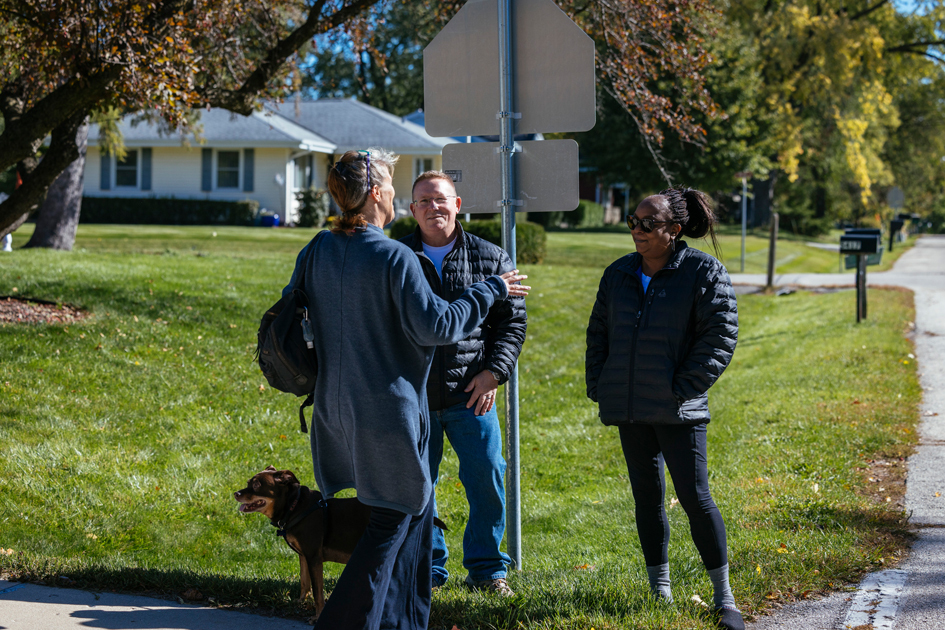
Middle-aged and married in 2018, John and Kim are first-timers at marriage and homeownership, learning the joys and challenges of both. Their house is a fixer-upper in Brown Deer, a community north of downtown. For two years the couple have labored to get the place into shape. John has YouTube’d his way through repairs and installations while Kim, with her flair for crafting and design, has furnished every corner with a homey touch.
They know their neighbors. One man picks up trash strewn near the sidewalk, and John has followed his lead. Strange faces are becoming familiar. It feels like home. But even as they’re getting used to this new life, John has nightmares that he’ll wake up to his past—that all of this is a dream.
****
“I should have died,” John remembers, looking back at the difficult years before he met Kim. “I never really did drugs, never liked alcohol because my dad was an alcoholic.” That was before John broke his jaw in a car accident and was prescribed oxycodone and Vicodin for the pain. Within months, he was addicted.
For 10 years John depended on his prescriptions; he went to college and achieved a degree in business while using. But as he started a career in accounting, the medical community began to respond to the highly addictive nature of opioids and John was cut off. “The withdrawals were so hard,” he recalls. “I sought street drugs to function.” And function he did, for a time.

When his father died of pancreatic cancer, John tried to counteract his emotions with more drugs. His work suffered—he often called in sick or left early. One job after another was lost. He turned to landscaping and construction—“anything with daily or weekly cash payments.”
By 2013 John was 43, addicted to oxycodone and mooching off his elderly mother. When she passed away, the bank took her house, and he was left homeless and grieving. John alternated between sleeping in his car and renting cheap motel rooms. Then one night he heard something he never imagined could be true: “God has a plan for your life.” Turning to look at the TV, he saw a gray-haired preacher and thought, Nah, my time is long gone.
Yet the question lingered: Could there be something more? The next morning, John found a free detox center in downtown Milwaukee and checked in. “I was just trying to see if my life was worth saving.”
The withdrawals were crippling. His arms began to twitch, and he lost control of his body; he was in tears and crying out to God. It only grew worse in the night. “I thought I was going to die,” he says.
"I never thought I’d have proof that there’s a living God, but now I do.”
God is always at work, in countless ways that remain unseen. And John, broken and surrendering, began to take notice. First, there was the nurse who came to him on his worst night. She placed a cold cloth on his forehead, rubbing his legs until he fell asleep. When he awoke, he went to thank her. But the center employed no such woman. A day or two later he was rejected for a 90-day in-patient treatment program because he’d never used intravenous drugs. Then came a call saying, “I’ve never seen this, but they approved you for a bed. We’ll pick you up tomorrow.” Now he had a recovery plan and a place to live. And when he asked, the center went against their protocols and let him work nights at the General Mills plant to save for an apartment.
“I used to be embarrassed that this happened to me,” says John. “But I’ve just started being honest about everything. It’s thanks to God. I never thought I’d have proof that there’s a living God, but now I do.”
****
Just past the Milwaukee Art Museum, on Lincoln Memorial Drive, there’s street parking for visitors to McKinley Beach. On a spot now restricted by bicycle barriers and wooden fencing, John and Kim were married.
The couple springs from my rental car and hurry ahead, the wind rippling everyone’s jackets as it howls from Lake Michigan. They slip around the first line of barriers and point out the driftwood farther on where their wedding photos were taken. Together they huddle in the chill and Kim’s eyes well up as John pulls her closer.
They met over the phone. John was an accountant again and Kim, a client of the law firm where he worked. She would call to make payments on a house she’d sold for less than her remaining mortgage. John and Kim began talking on the phone more than was necessary. She found him kind and helpful. And John was inspired by this conscientious woman who, after a day of teaching preschoolers, earned extra money at a hot dog grill. A mutual attraction formed. “We bonded on everything,” John says.
But what could be done with these feelings? Theirs was a client-accountant relationship and they’d never met in person. Then Kim called again, expressing her gratitude. She asked if he’d like to stop by her workplace for a hot dog. John couldn’t make it but didn’t want to miss his chance. So he sent her an email: “I can’t stop thinking about that hot dog.” And that led to a plan: They’d meet for pizza and see each other for the first time. So, at a small storefront Italian restaurant, they shared a pie—and a cozy booth—for hours.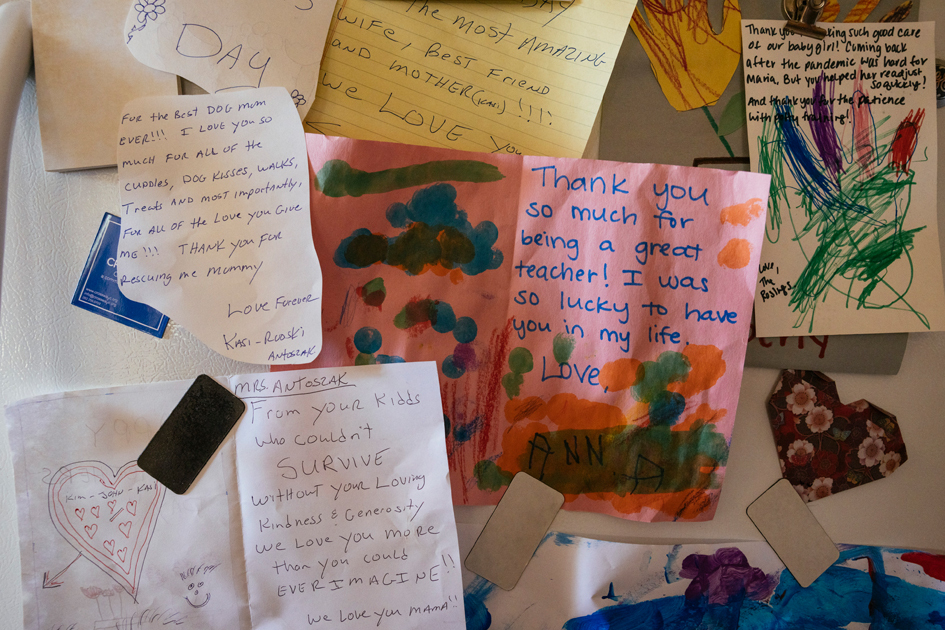
On their next meeting, Kim brought Kasi. They walked together, John holding the leash. Kasi rushed ahead, tugging John forward, testing this newcomer. Kasi circled a tree, the leash tightened, and the dog slipped off the line. John thought he’d blown it, losing control of her dog on their second date. Instead, Kasi became a great neutralizer between John and Kim, something to talk about, a shared experience, as they walked and got to know each other.
Kim had been lonely. After her mother’s death, she wanted to meet someone, but the men she encountered weren’t very sincere, so she devoted her energy to work. She had a godly grandmother, “but I wasn’t trusting God,” she says. Then John invited her to church. “It took me a long time to realize that God really loved me.”
To be with John, she jumped right into his community at church and soon surrendered her brokenness to Christ. “There’s such a feeling in my heart now. When I prayed, it used to take me a long time to just say something. But now, I don’t hesitate. I know He’s not going to judge me. You can’t disappoint God.” 
In an ironic way, John considers his addiction the best thing to happen to him. “It brought me to the Lord. And now every day I wake up and walk the dog with Kim. She’s gorgeous, and I’m so grateful.”
That gratitude extends into acts of service. John and Kim serve together at the local Rescue Mission where they serve meals and do a little cleaning. They look in the faces of people who are alone and without homes, and they remember how John once lived. “This is where I would have needed to go to get shelter, if God didn’t step in.”
Though they’ve known each other only since 2016, it’s a challenge for them to remember how John broke the ice about his story of addiction. He was so thoroughly changed, so transformed by faith in Christ, that Kim had difficulty thinking any of his past could be a threat to them now.
As we head back to Brown Deer after a long day of reminiscing about their life together, John produces a mugshot taken nearly a decade earlier when he’d been arrested for unpaid tickets. “I can’t believe that’s my husband,” Kim says. His face is gaunt, his complexion battered; the eyes seem lost. It’s a man who looks much older than the one before me. When Kim saw the photo for the first time, she finally had a sense of what John had overcome.
Quietly, John tucks the picture back into his wallet, an artifact from a life worth saving.

